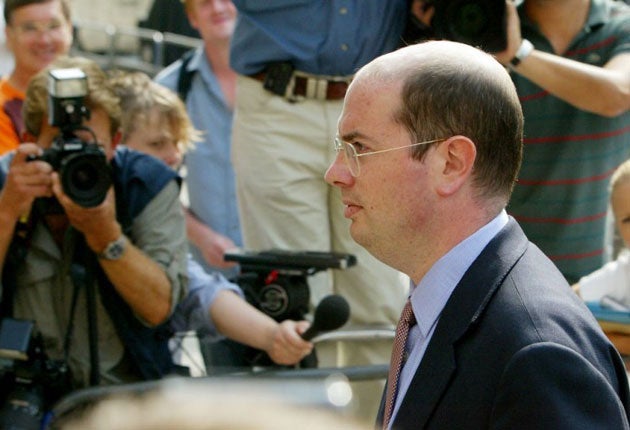Iraq evidence 'vindicates BBC's dossier claims'

The editor of the BBC's Today programme at the time of its controversial 2003 report which claimed the Government had "sexed up" an Iraqi weapons dossier said last night that evidence provided to the Iraq Inquiry by the former intelligence official Michael Laurie proved that his team had been right all along.
Kevin Marsh described Maj-Gen Laurie's evidence as "devastating for [Alastair] Campbell", the former Downing Street communications chief, whose furious response to the Today report led to the Hutton Inquiry and ultimately to the resignations of the BBC's director general and chairman. "The thing that rankles with me a little bit is that I thought at the time when [the Today reporter] Andrew Gilligan came with the story was that it wasn't just broadly correct, it was 100 per cent correct," Mr Marsh said.
"Here's the guy at the very top of the [Defence Intelligence Staff] saying, 'we knew we were being pushed to find a certain bit of evidence and it was being presented in a certain way' and that's exactly what Andrew said in his story."
In written evidence to the Chilcot inquiry, Maj-Gen Laurie rejected Mr Campbell's claim that the dossier was not intended to make the case for war: "This was exactly its purpose and these very words were used."
Among former and current members of the BBC news department, the comments were received yesterday with mixed feelings that combined a sense of vindication with anger at the way the organisation's journalism has been treated. Mr Marsh said he was unhappy with the implications by Lord Hutton in his 2004 report that the staff on Today had shown a lack of professionalism. "This vindicates our position and shows Hutton was wrong in criticising Andrew, criticising me and criticising the Today team," he said. "Just flat wrong." Rod Liddle, a former Today editor who hired Mr Gilligan, said: "These comments tell us what we knew already – that the BBC told the truth, Gilligan told the truth and Alastair Campbell's outrage was confected and it was a lie."
Mr Marsh is writing a book on the affair, called Stumbling Upon Truth, which is to be published on the 10th anniversary of the publication of the dossier in September next year. The context for the book, he said, was "that a great clash between New Labour and the BBC was inevitable from the day that Campbell was recruited".
Mr Gilligan was blamed by some for the death of his source, Dr David Kelly, a weapons inspector who committed suicide in 2003.
In the wake of the Hutton report, the BBC is widely held to have become more cautious in its journalism, introducing layers of procedural checks as senior executives sought to avoid further criticism. Mr Marsh, who was later appointed executive editor of the BBC College of Journalism, described it as a "fairly suffocating compliance culture".
John Kampfner, who was a political correspondent on Today but left before the 2003 controversy, said the BBC should have done more to stand up to the New Labour government. "There was absolutely no willingness on behalf of the governors to do anything but raise the white flag," he said. "It was a wholesale capitulation instead of what should have been a partial expression of regret for certain procedures of oversight with an agreement to disagree on the substance and [an expression of] support for courageous journalism." What was already a cautious news organisation took on a culture of being fearful of "sticking your neck out", he said.
Mr Campbell has said he has nothing to add to his previous evidence.
Join our commenting forum
Join thought-provoking conversations, follow other Independent readers and see their replies
Comments
Bookmark popover
Removed from bookmarks